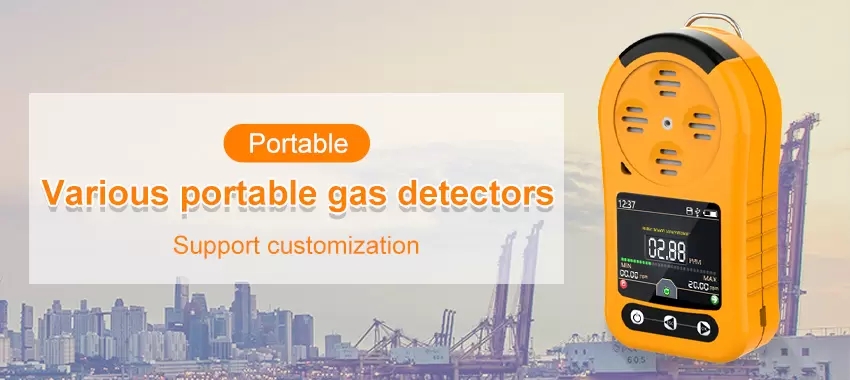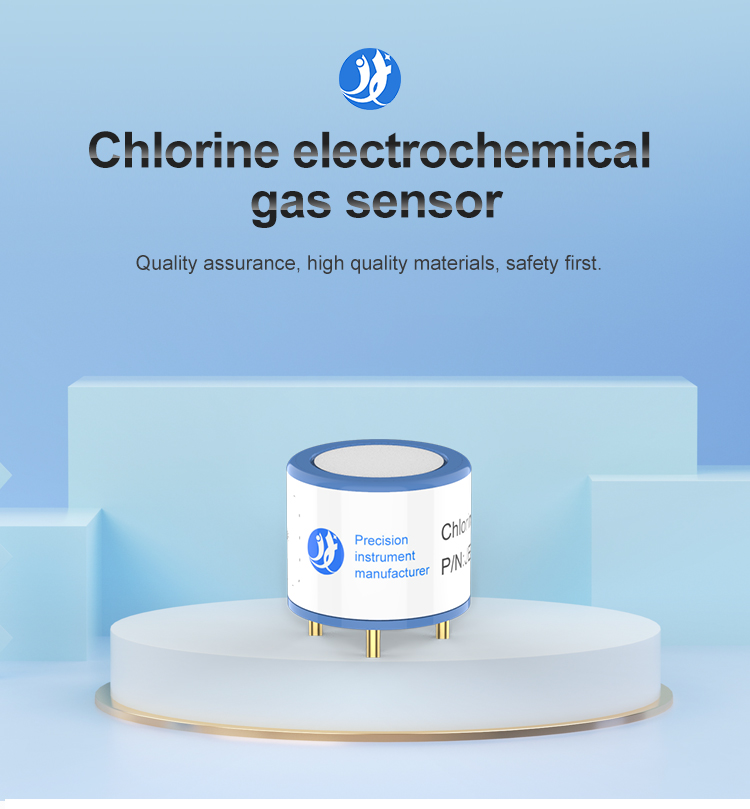Background:
Chlorine is an elemental gas with the chemical formula Cl2. Under normal temperature and pressure, it is yellow-green and highly toxic gas with a strong pungent odor. Suffocating. Density is greater than air gas, soluble in water and alkali solution. It is easily soluble in organic solvents (such as carbon disulfide and carbon tetrachloride), easy to compress, and can be liquefied into yellow-green oily liquid chlorine. It is one of the main products of the chlor-alkali industry and can be used as a strong oxidant.We can use a chlorine gas sensor for monitoring.
The dangers of chlorine:
When chlorine gas is mixed with hydrogen with a volume fraction of more than 5%, there may be a danger of explosion when exposed to strong light. Chlorine gas is toxic, mainly penetrates the human body through the respiratory tract and dissolves in the water contained in the mucous membranes. Causes damage to the mucosa of the upper respiratory tract. Chlorine can undergo substitution and addition reactions with organic and inorganic substances to form various chlorides. Mainly used in the production of plastics (such as PVP), synthetic fibers, dyes, pesticides, disinfectants, bleach solvents, and various chlorides.
How harmful is chlorine leakage to the human body?
Chlorine gas is one of the most dangerous chemicals and contains certain toxicity. When inhaled by the human body, it will cause damage to the human respiratory mucosa. Difficulty breathing. A large amount of mucus is secreted, and symptoms such as severe coughing appear.
When the human body inhales chlorine gas, it is easy to develop PPMHTV, formaldehyde and pulmonary edema, and even lead to death. Because the human body can feel uncomfortable after inhaling a large amount of chlorine gas, there will be symptoms such as nausea, vomiting, chest pain and diarrhea. Poisoning may occur in severe cases. Chlorine gas is highly toxic, and inhalation of chlorine gas by the human body will cause serious damage to the body’s systemic organs. In severe cases, systemic edema occurs. If a large amount of chlorine is inhaled, it may lead to poisoning and death due to hypoxia within two minutes.
Chlorine gas is a highly toxic liquid, which can cause poisoning when the human body inhales a large amount of liquid gas. Severe organic dysfunction may also be left behind. Some people may also develop severe paralysis that can lead to lifelong disability. So everyone must stay away from chlorine. In the event of a chlorine leak, urgent protective measures should be taken. Avoid harm to the human body.
How to detect chlorine gas?
Chlorine is a highly toxic gas with a strong pungent odor. It is suffocating and is yellow-green at room temperature and pressure. It is often used in the production of dyes, pesticides, disinfectants, bleaches, etc., and in chemical plants, it is often used in the production of various chlorides. Because of the harmfulness of chlorine gas, it is often learned from the news that chlorine leaks in chemical plants have caused deaths. Due to the wide range of industrial gas flow, the use conditions are complex. There is no special person to supervise on a daily basis, and once a leak occurs, a large amount of accumulation occurs. When the concentration reaches the explosion limit and encounters an open flame, it will cause a fire or explosion accident. Dangerous. So, how can you prevent industrial gas leaks? Therefore, for safety reasons. The generated chlorine gas needs to be tested.

Portable chlorine Gas Detector:
Jingxun’s portable chlorine sensor is a portable detection and alarm device that focuses on detecting the concentration of CL2 in the air. CL2 gas leak detector has high-definition liquid crystal display and sound, light, vibration alarm prompts and other functions. Guaranteed detection of gas content even in harsh working environments. Timely alarm to remind operators to take precautions.

Jingxun’s chlorine electrochemical gas detection sensor:
The smooth flow of chlorine electrochemical gas detection sensor. Adopt three-electrode structure design, built-in high-precision electrochemical sensor. The gas concentration signal is output as a digital signal required by the customer through the circuit. Internal high precision sensor amplifier, handles noise, temperature compensation. Before leaving the factory, each sensor is processed by standard calibration gas. It is a mature technology and excellent electrochemical detection circuit design. Design and build a universal gas sensor. Ensure that customers receive available and accurate gas concentration information directly from the sensor module output.